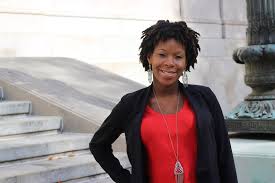I was thrilled to see a discussion of black gentrification crop up in response to Rasheda’s post a few months ago. Happy to circle back around to that post with Rasheda’s latest:
A few months ago I wrote a post on being viewed as a “black gentrifier” in the city of Camden. My focus was local, but the impact of the post was regional at least. While traveling throughout the region I have conversed with people, from various backgrounds, that have the same concerns I present in that post. The more conversations I have about this and the longer I live in Camden, the more I ask myself the question: “Is being a black gentrifier really a bad thing?

A major issue affecting low-income, urban, predominately black communities is what Harvard University Professor William Julius Wilson calls social isolation. Social isolation is a lack of contact or of substantial interaction with individuals and institutions representing mainstream society (Wilson, 2012). It is thought to hinder educational and employment opportunities in poor communities. As a result, large concentrations of residents in socially isolated areas are jobless and have low-educational attainment.
Using the logic of social isolation, I question whether or not being a black gentrifier is solely a bad thing. Having examples of successful black professionals in a city, where such examples are limited, may have positive implications. For instance, since moving to Camden, I have utilized my role in different leadership positions to foster employment and educational opportunities for people, regardless of color, in the city. I have also worked with other residents to advance community development initiatives in my own neighborhood and others. In doing so, I not only aim to be a force for social change, but to inspire others to be as well.
I, like other black professionals I know in the city, am able to successfully engage in such activities because of my educational, professional, and social background. Not to mention, I am intrinsically motivated by my experiences and reflections about growing up in a city similar to Camden. As mentioned in my last post on black gentrification, I had no idea that I would be viewed by some residents as a black gentrifier. What I find interesting about this is that many middle class residents, of all races, have left the city to pursue housing, educational, and employment opportunities elsewhere (CamConnect, 2001).
The limited socioeconomic diversity resulting from this has made Camden a more socially isolated place. Increasing the number of middle class professionals, black or white, in the city would decrease this isolation and may foster development. This has led me to ask the question, “Is being a black gentrifier really a bad thing? Trying to answer this question has inspired me to also ask: does social isolation in communities like Camden result in a need for black gentrifiers? And do black gentrifiers have different implications on communities than white gentrifiers?
At the moment, I do not have definitive answers to these questions. However, by writing this blog post I hope to encourage readers to explore their own. I have found doing so to be quite a learning experience, as it forced me to examine a variety of factors and biases influencing why gentrification is often demonized.
References
CamConnect. (2001). A path forward for Camden. Retrieved from: https://www.camconnect.org/datalogue/CamdenPath.pdf
Wilson, W. J. (2012). The truly disadvantaged: The inner city, the underclass, and public policy. University of Chicago Press.